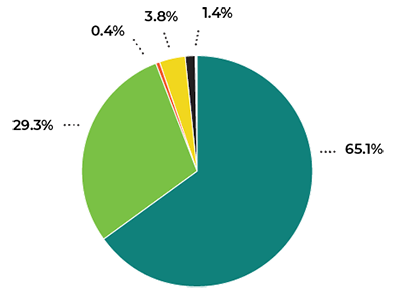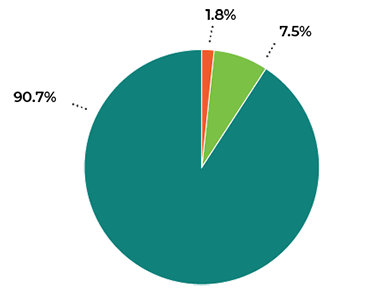MODC continued to demonstrate exceptional performance across all major program and service areas — growing the organization’s mission impact even under the ongoing challenges of the COVID-19 pandemic. This was matched by strong financial performance that will enable the organization to reinvest in the health of its reserves, while mitigating future financial risks.
As we began to reintroduce in-person programs — while maintaining virtual options to better serve our community — we increased our reach and grew overall revenues by more than $13M. This allowed us to increase our service delivery investments by $12M — a 9% increase over last year. Government-funded pandemic wage increases account for half of that amount, while the rest came from new contracts, annual contract increases, and more referrals to our fee-for-service offerings.
Overall, March of Dimes Canada reports a consolidated surplus of $1.3M at year end, with $2M surplus from operations and $0.7M of deficit in the reserves mainly due to unrealized investment losses.
In keeping with our commitment to stewarding funds responsibly and efficiently, 91% of our total operating expenses went toward program and service delivery, 7% to administration and 2% to fundraising activities. We are proud to be a member of Imagine Canada’s Standards Program, which accredits non-profits that demonstrate excellence in financial accountability and transparency.
Our financial reserves remain healthy at $21 million, supporting the long-term growth and sustainability of our work.
2021-2022
Operating Revenues


Government grants

Fees

Program recovery

Philanthropy and non government grants

Investment and other
2021-2022
Operating Expenses


Program expenses

Administration

Philanthropy
